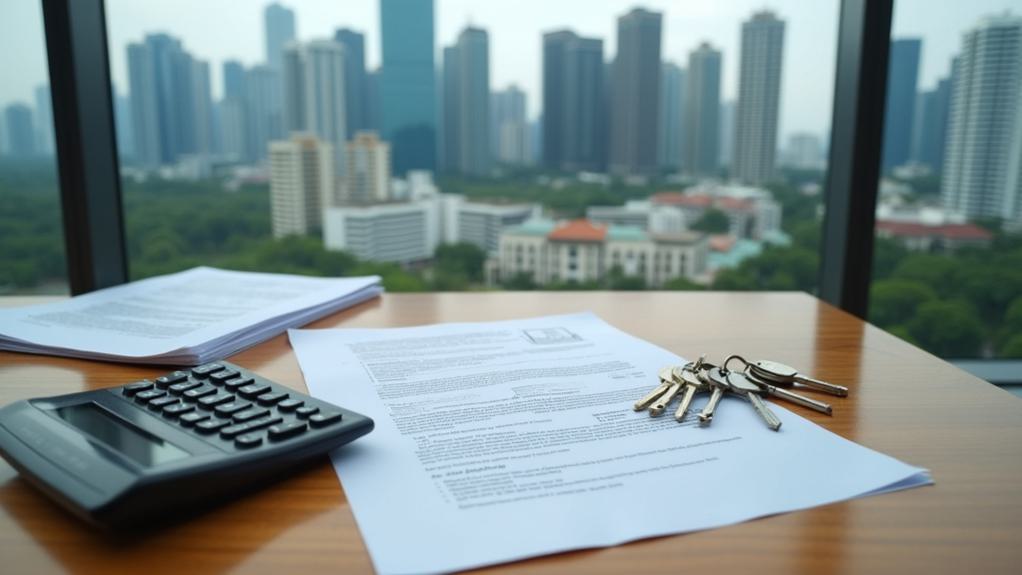How can property owners in Singapore legally restructure their ownership arrangements to optimize their real estate portfolios while maneuvering the complex regulatory framework governing property transactions?
Property decoupling represents a sophisticated financial strategy that enables married couples to transfer full ownership of their existing property to one spouse, allowing the other party to purchase additional real estate without incurring Additional Buyer’s Stamp Duty penalties that can reach 20% of the property’s value for Singaporeans acquiring second properties.
Property decoupling enables married couples to strategically transfer ownership, allowing one spouse to purchase additional real estate while avoiding substantial stamp duty penalties.
The legal framework governing decoupling restricts this practice primarily to private properties, including condominiums, apartments, and landed properties, while HDB flats remain largely ineligible except under specific circumstances such as divorce, inheritance, or compliance with Housing Development Board eligibility requirements.
Executive Condominiums present unique constraints, permitting decoupling only after fulfilling the mandatory five-year Minimum Occupation Period, reflecting the government’s policy to maintain these properties’ quasi-public housing character.
The decoupling process requires detailed legal documentation and professional conveyancing services, typically commencing with initial consultations involving property lawyers or financial advisors who evaluate feasibility, regulatory compliance, and associated costs. All stamp duties and legal fees must be paid in full while ensuring proper documentation throughout the transaction to maintain legal compliance.
The ownership transfer mechanism involves converting joint tenancy arrangements to tenancy-in-common structures, followed by the purchase of the remaining ownership share by one party through sale or part-gift transactions. Many property owners utilize the popular 99-to-1 loophole where most ownership is transferred to one spouse while retaining minimal ownership for future strategic purposes.
Financial implications encompass multiple stamp duty obligations, including Buyer’s Stamp Duty on the transferred ownership portion and Seller’s Stamp Duty if the property has been held for less than three years.
Professional fees, including legal and valuation services, typically range from SGD 6,000 to SGD 15,000, depending on transaction complexity and professional service providers engaged. A certified professional valuer must conduct thorough analysis to determine accurate market value for the ownership transfer documentation.
Mortgage restructuring represents a critical component, requiring the remaining owner to refinance the existing loan under their sole name after completing the ownership transfer.
Central Provident Fund considerations mandate that CPF funds utilized in the original property purchase must often be refunded to the outgoing owner’s CPF account, impacting liquidity planning.
The entire process, culminating in registration with the Singapore Land Authority, typically requires 10 to 12 weeks for completion. Illegal or sham transactions risk substantial penalties, including fines, tax evasion investigations, or complete reversal of ownership arrangements.





